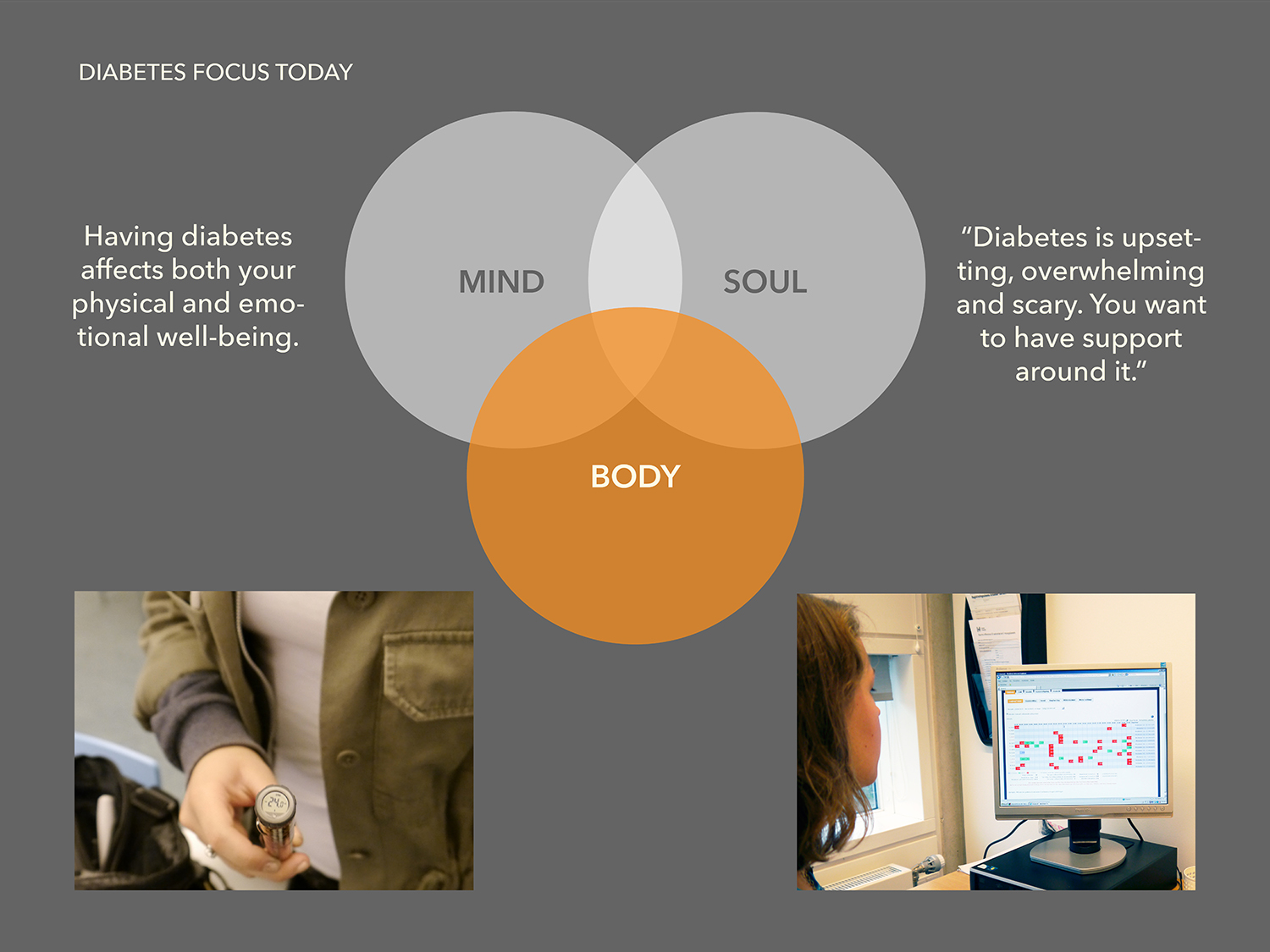
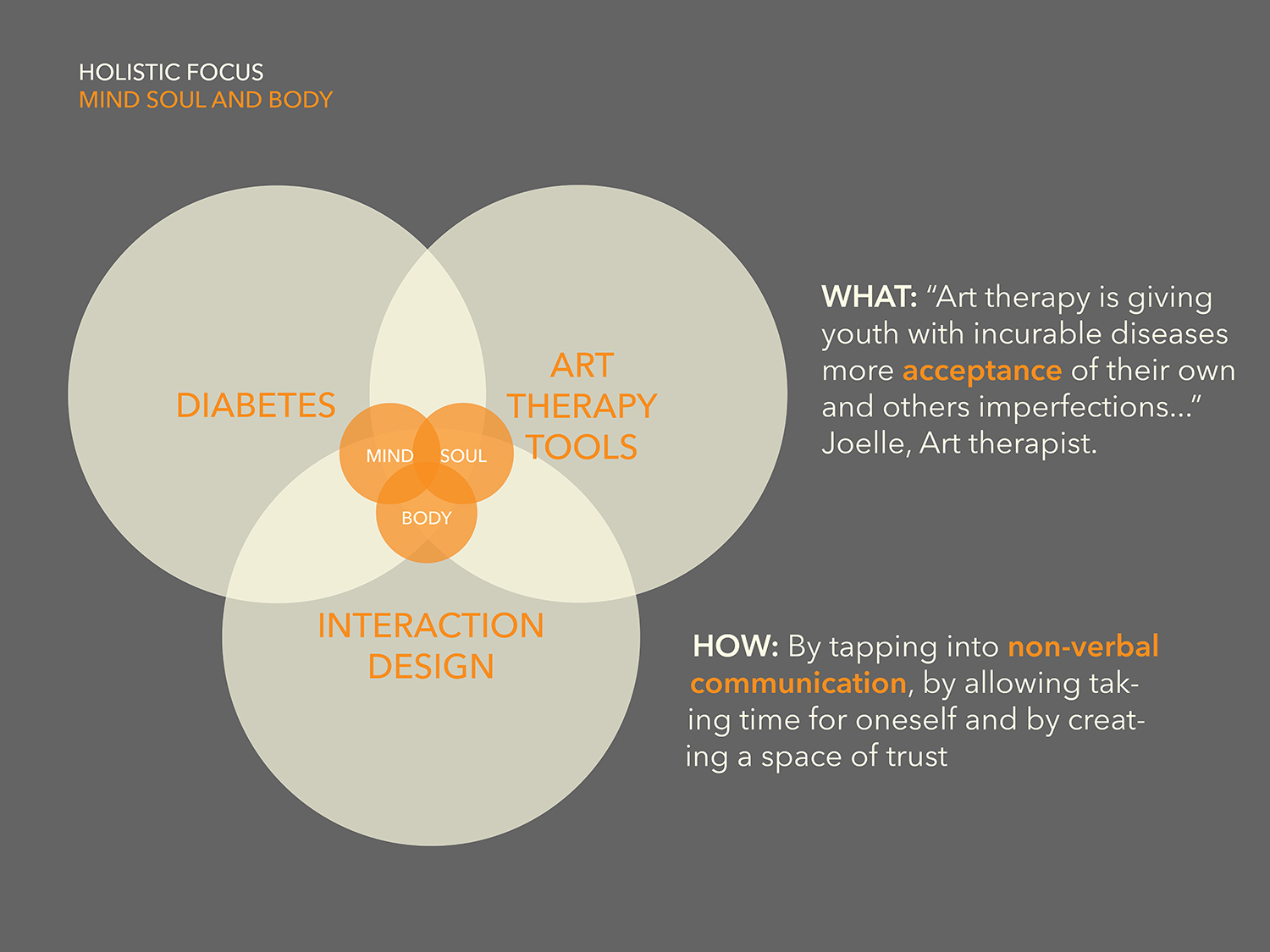
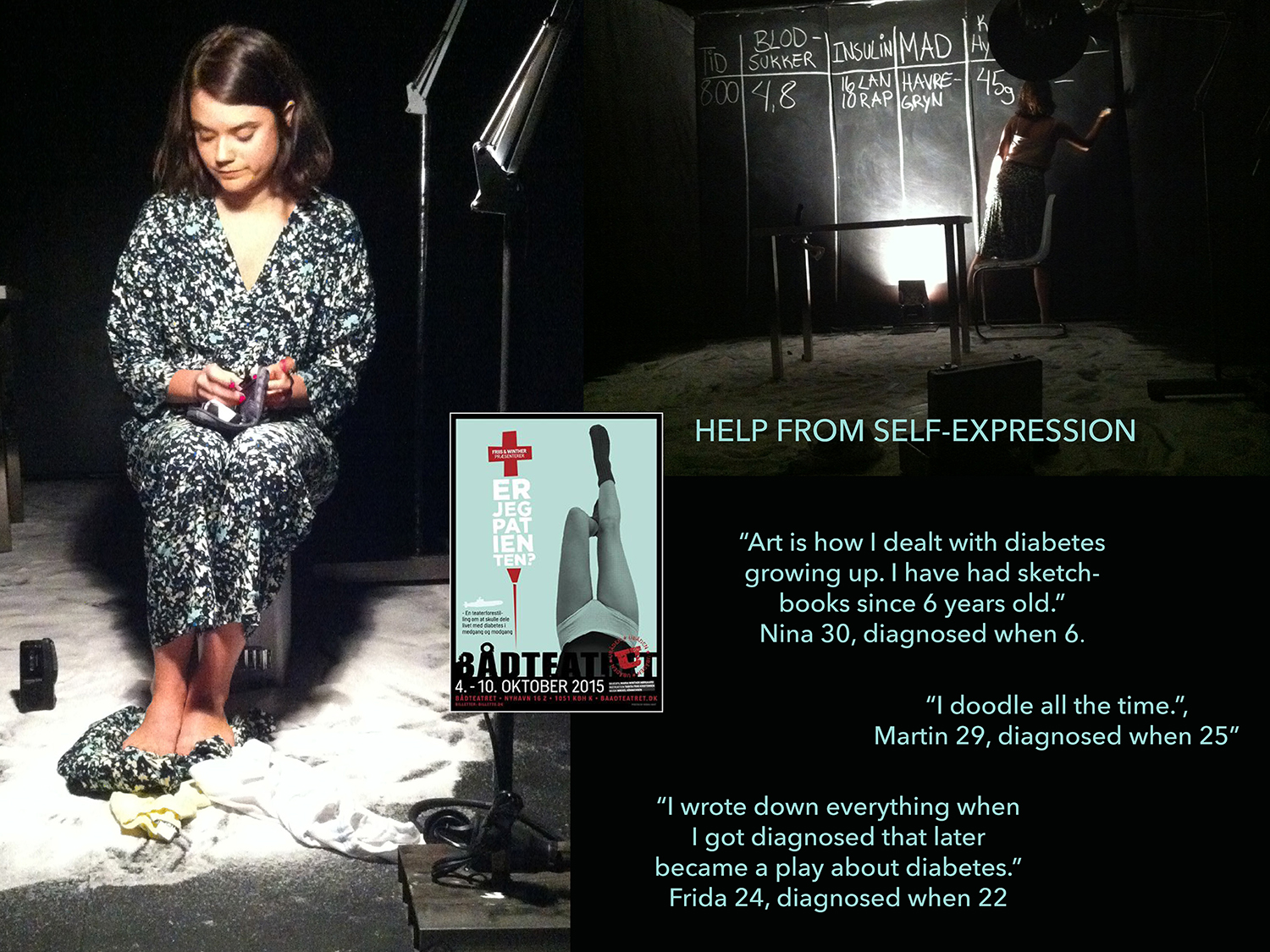
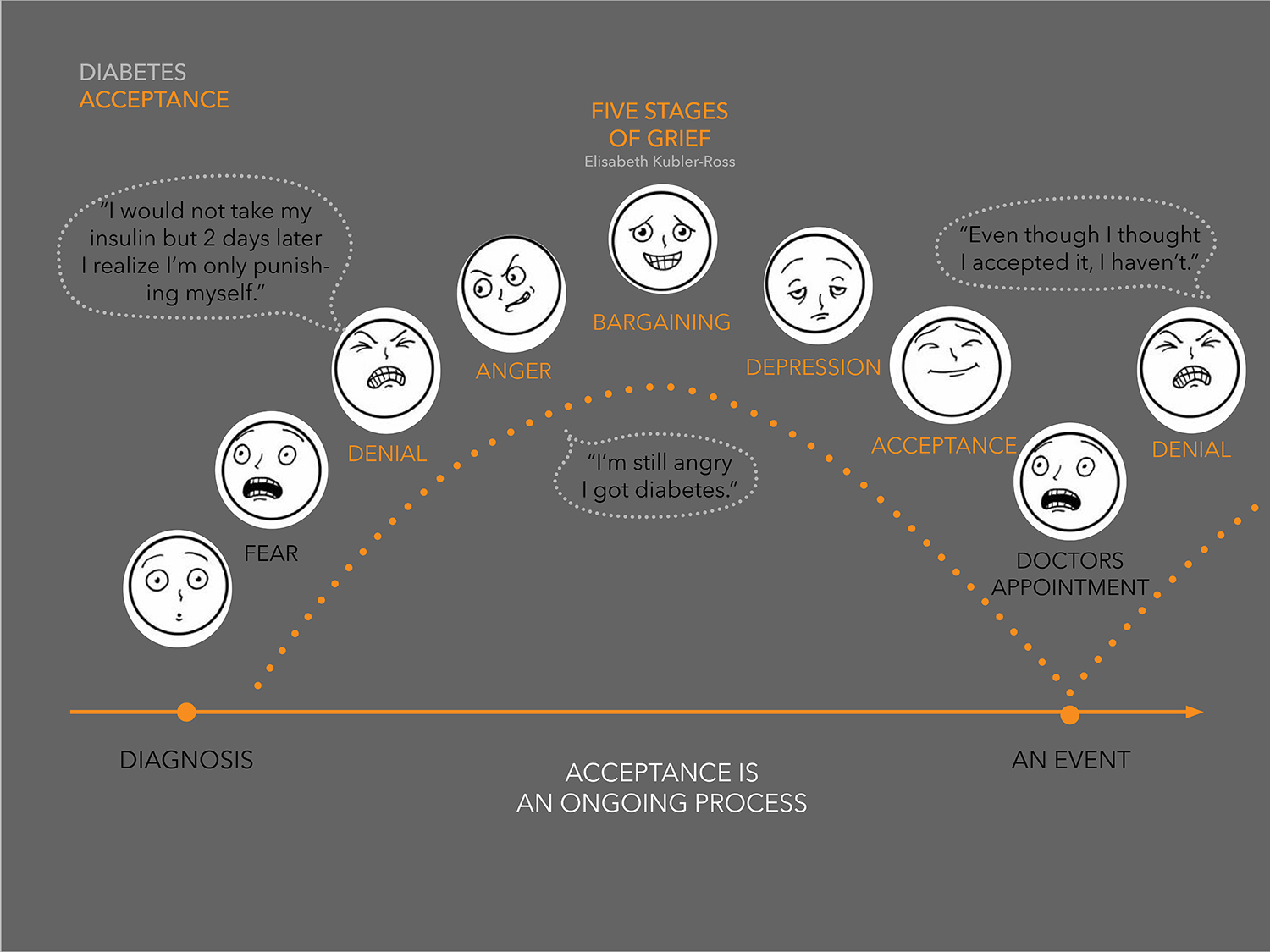
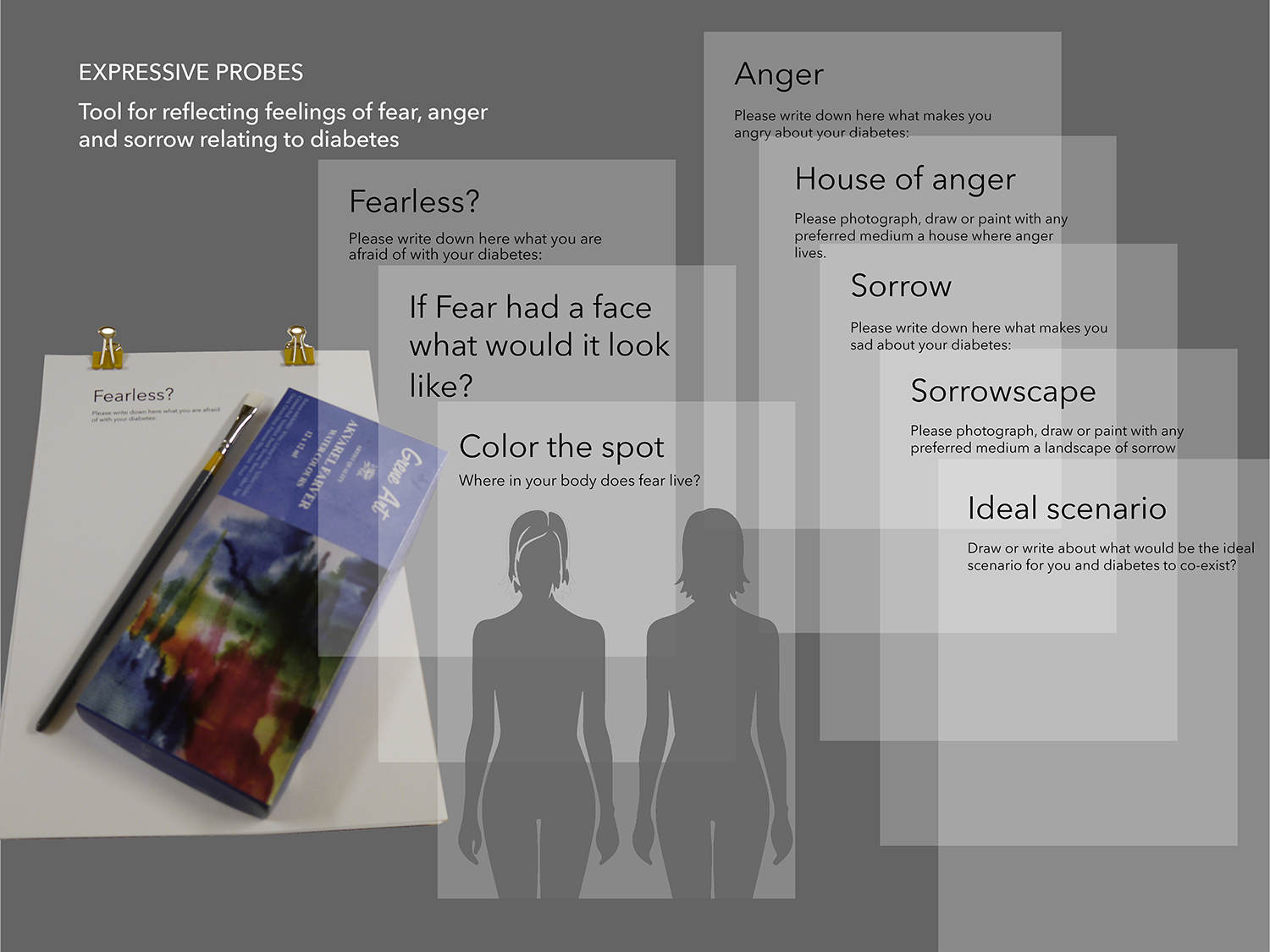
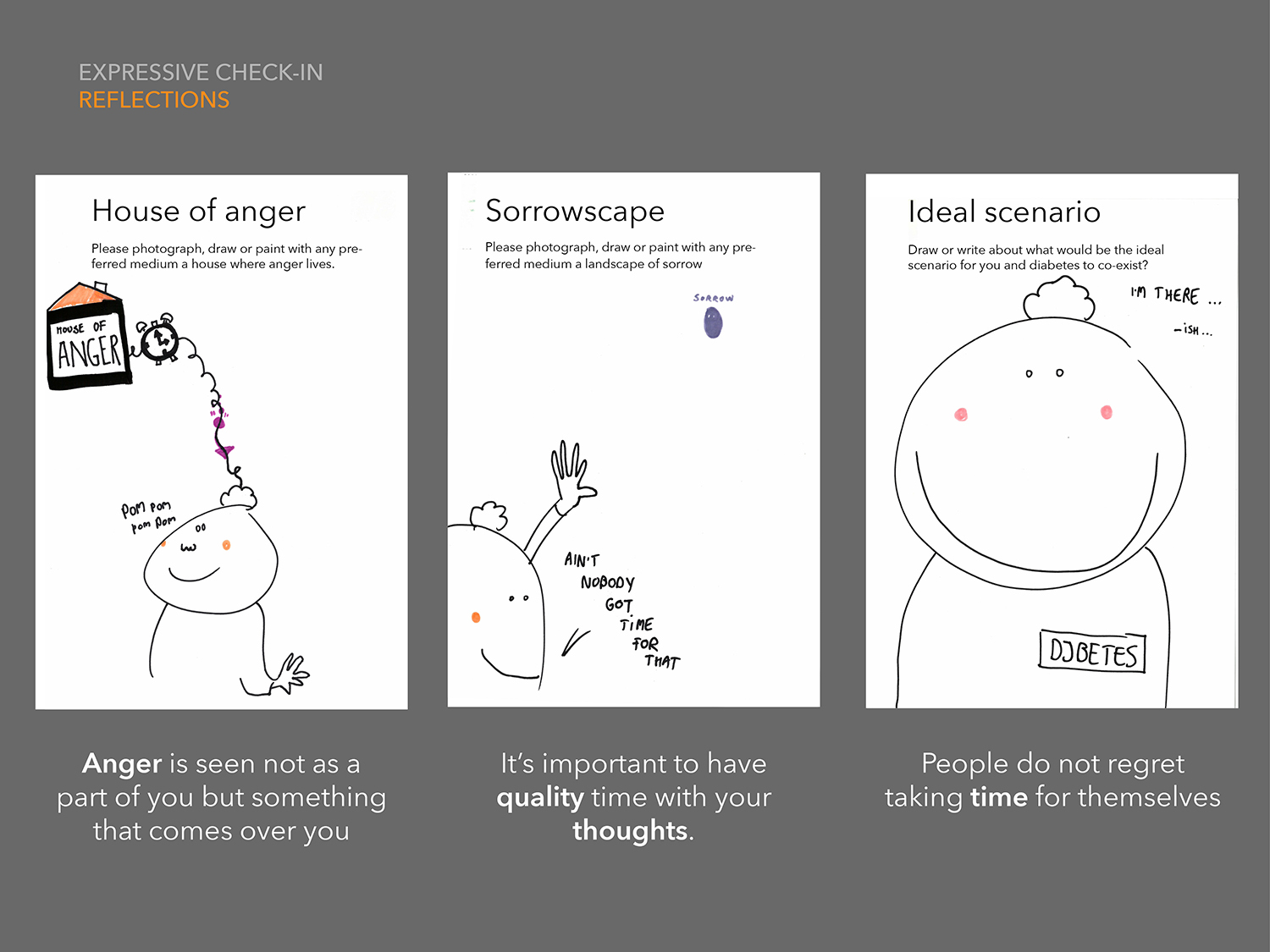
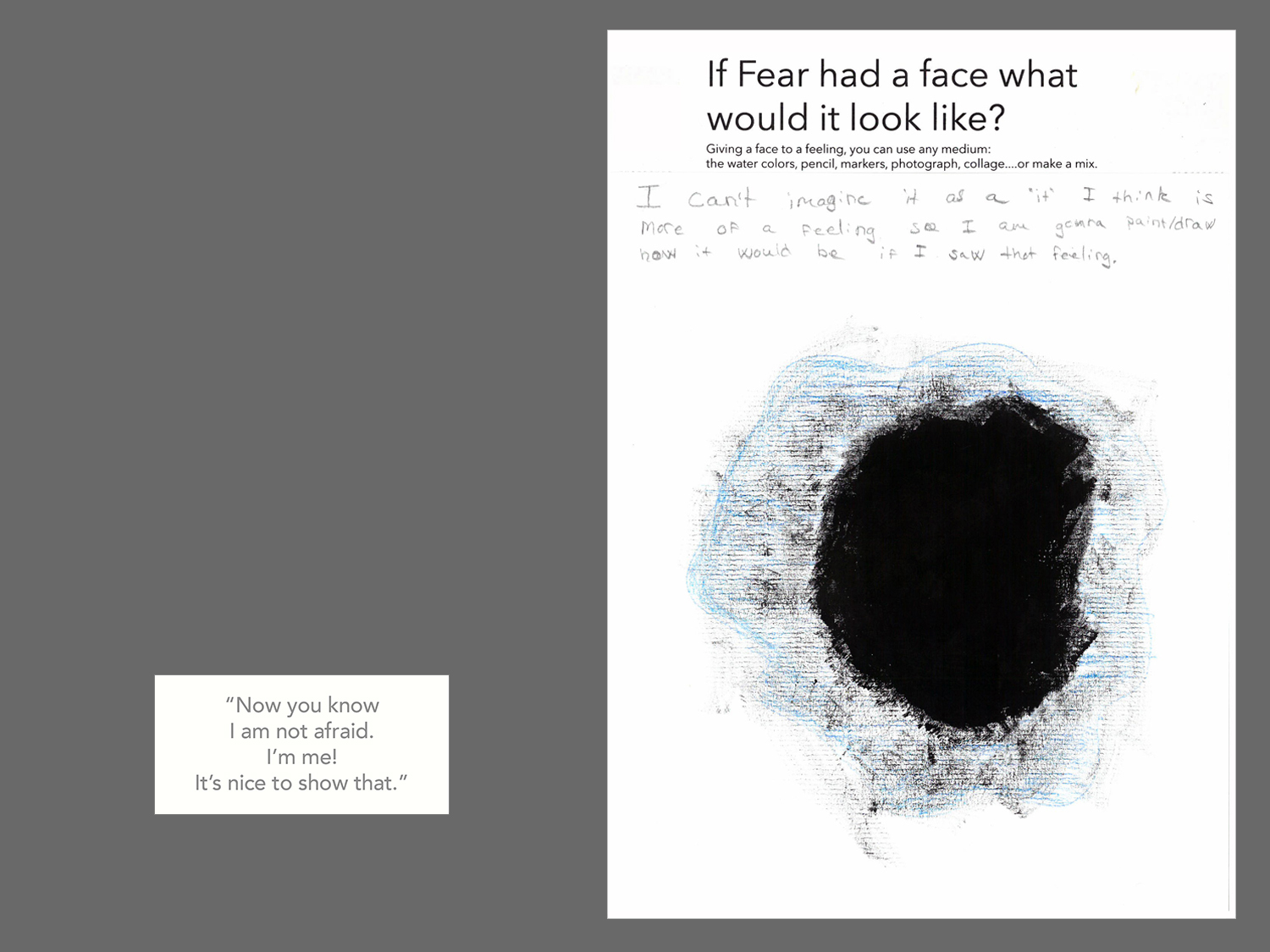
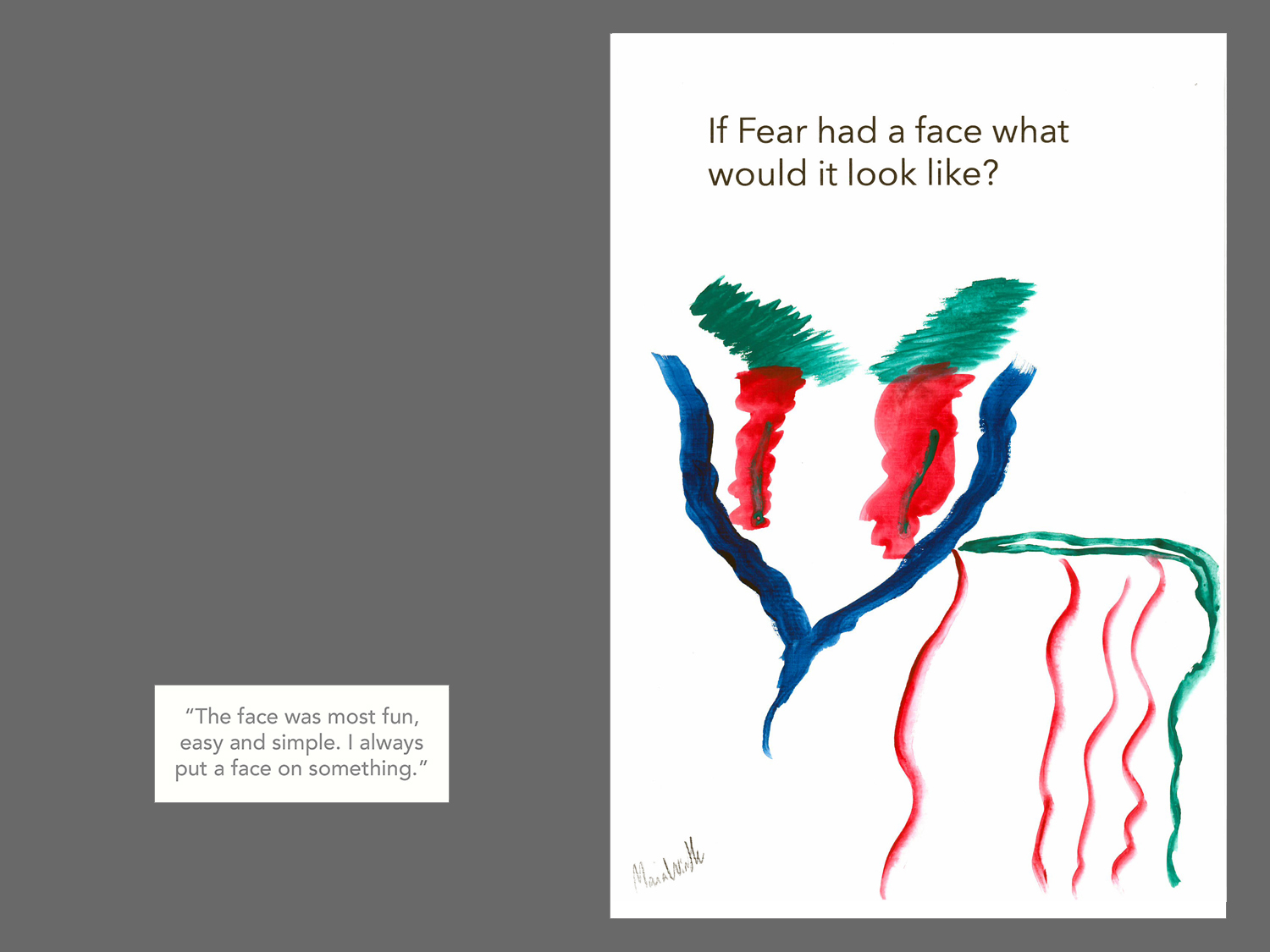
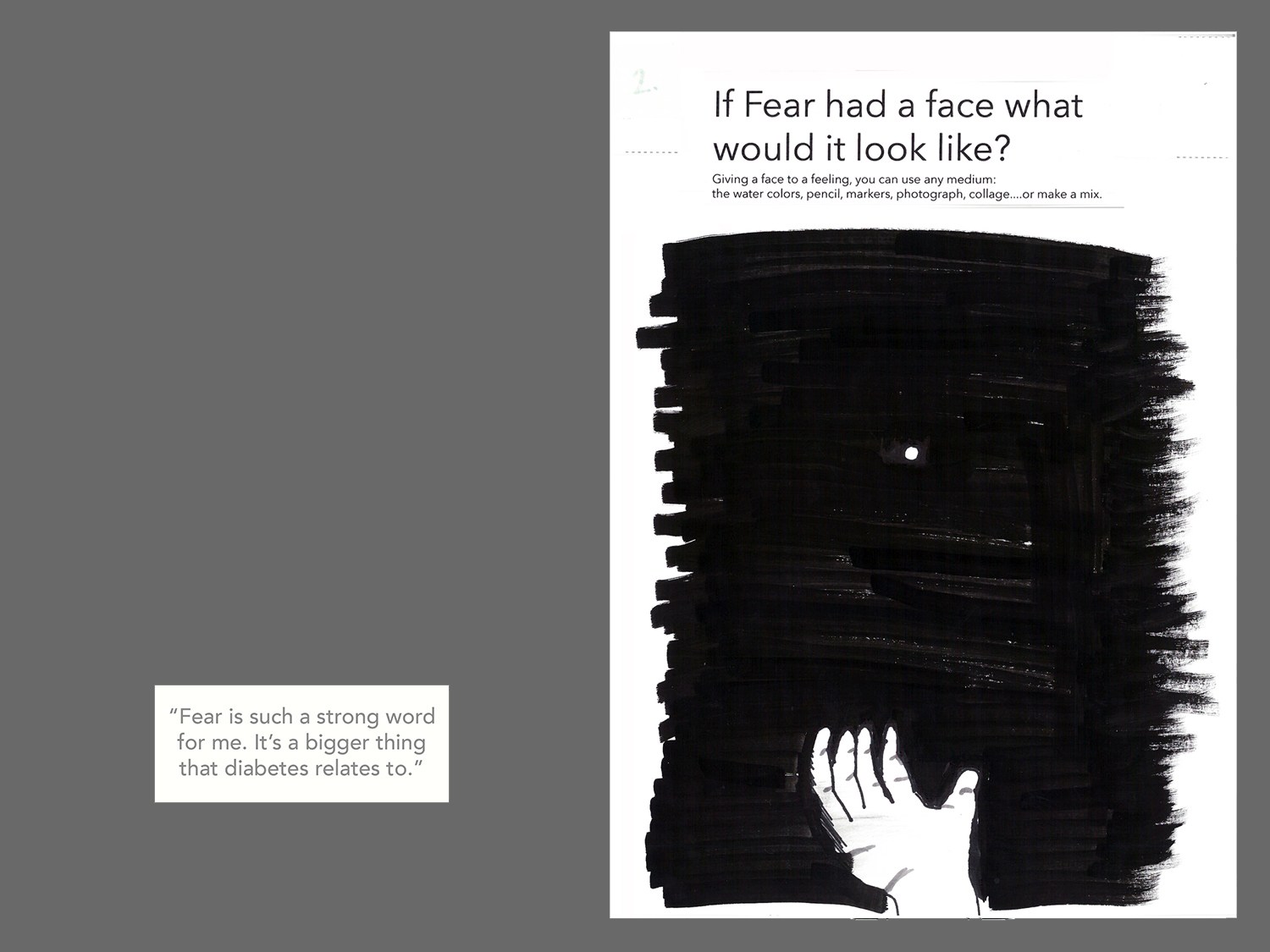
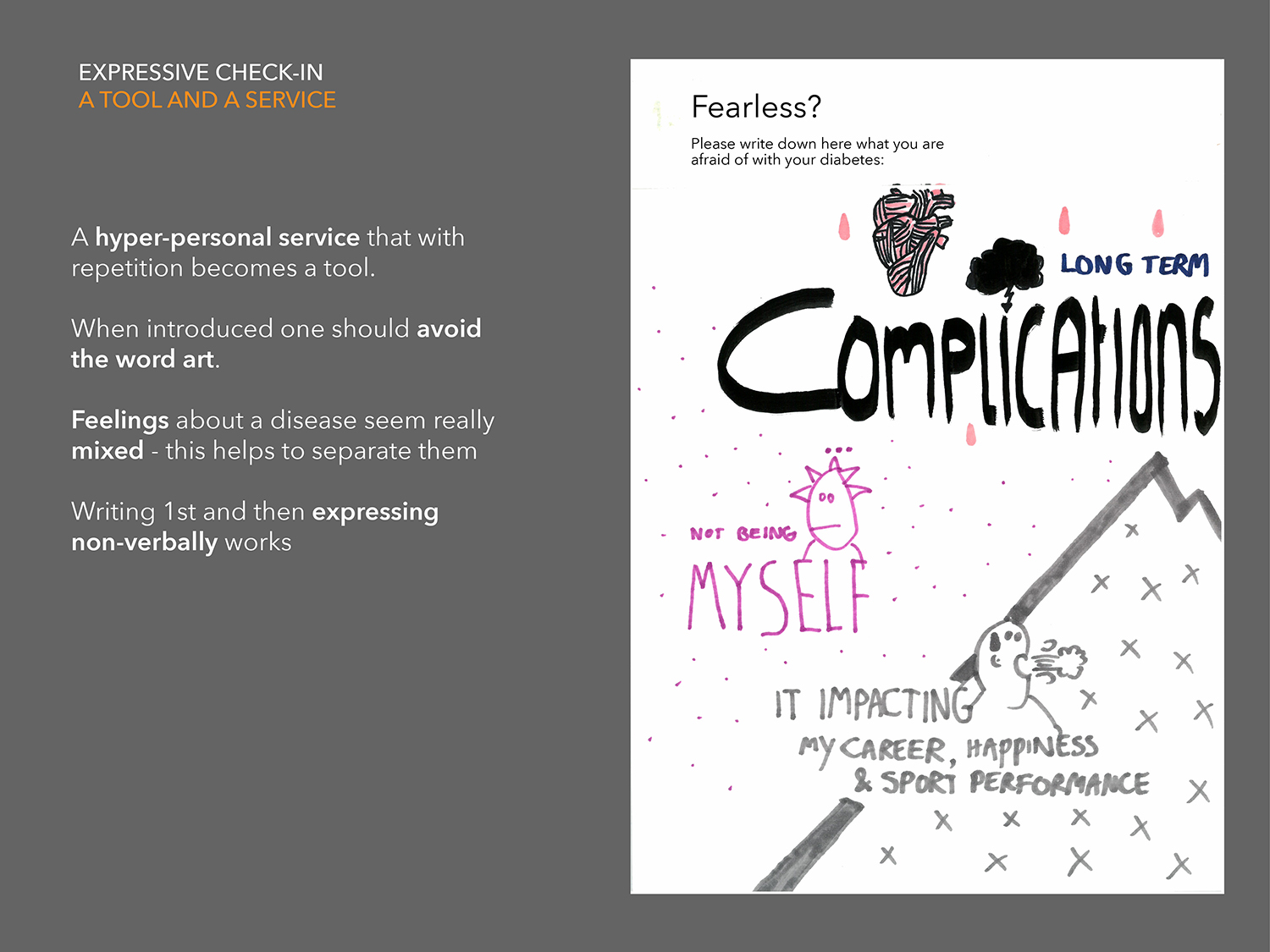



Expressive check-in
Can using language alone help to deal with the scale of emotions that come with a chronic disease such as diabetes?
Having diabetes affects both physical and emotional well-being of the person being treated. When one is diagnosed, the focus is for the most part set on how the patient is performing physically. However, anything from temperature, to hormones, to stress, can have an effect on ones emotional balance and ones blood sugar level.
A part of emotional well-being is the ability to express and externalise feelings relating to the issue. Professionals such as therapists and psychologists are ready to help but many people find these sources somewhat labelling and expensive. And again the question remains whether the use of spoken word is always the best and only way to relate to ones disease?
The experience prototype Expressive Check-in borrows methods from expressive art therapy. I wanted to find out whether diabetics I interviewed would benefit from expressing their thoughts and emotions about their disease in both written and non-verbal ways. The results were positive and people felt it was a good exercise to separate mixed feelings about ones disease.
Continuing on the research I will be interviewing more diabetics and with their help make iterations to the content. Introducing the kit to specialists and medical practitioners will allow me to discuss its benefits and possible integration to the care system.
Time: 8 weeks
Tools: Cultural probes, people centered research
Final project, Copenhagen Institute of Interaction Design, 2015